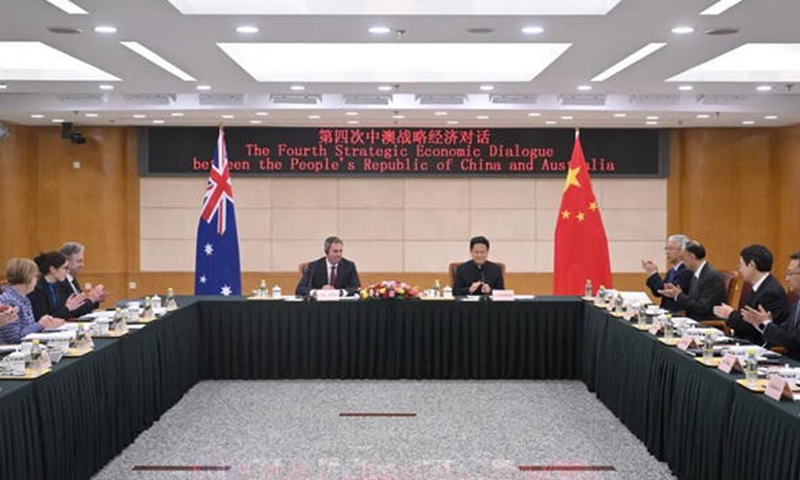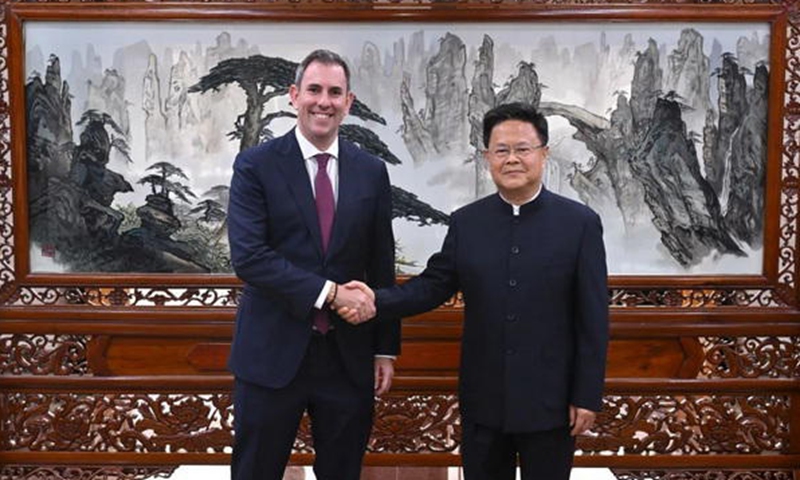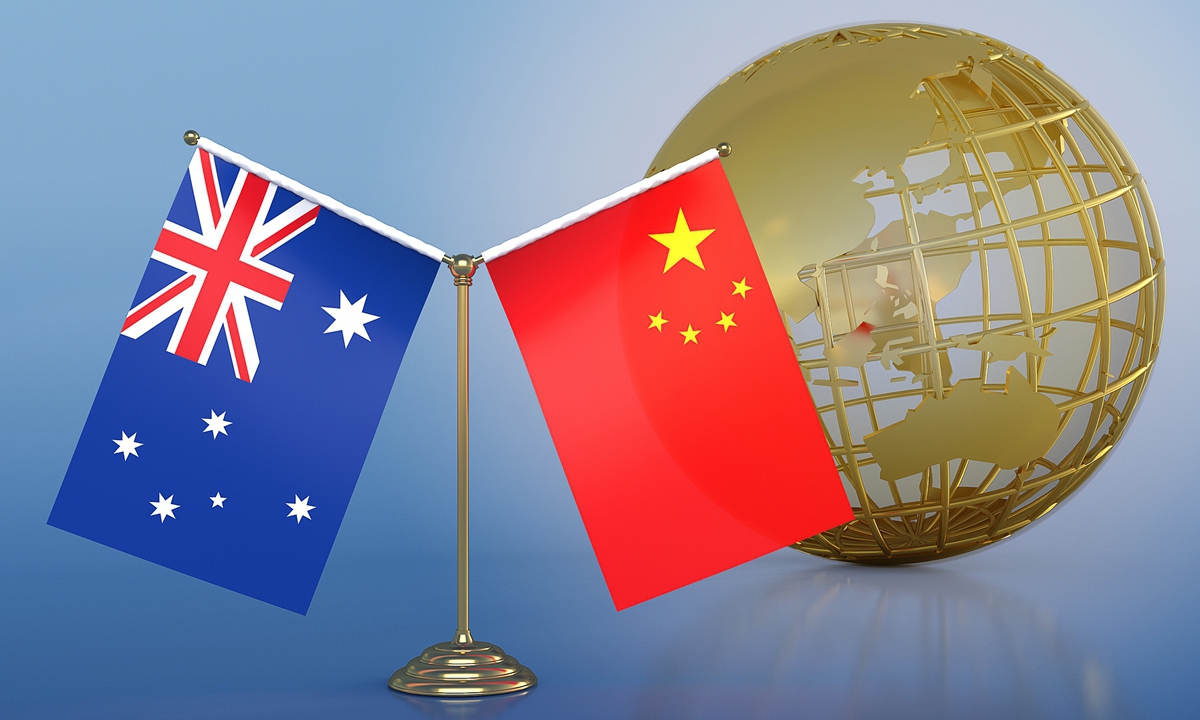Resumption of Strategic Economic Dialogue a positive step for future stability in China-Australian economic relations: expert

Photo:Official website of NDRC

Photo:Official website of NDRC
The Fourth Strategic Economic Dialogue between China and Australia was held in Beijing on Thursday, focusing on enhancing bilateral exchanges and promoting effective and pragmatic economic cooperation, China's top economic planner announced on Friday.This dialogue, the first such meeting since 2017, marks the restart of the ministerial-level strategic economic dialogue communication mechanism between the two countries. Experts believe this represents a positive step toward further restoring bilateral relations and economic cooperation.
The dialogue was co-chaired by Zheng Shanjie, head of China's National Development and Reform Commission (NDRC), and Australian Treasurer Jim Chalmers, who is visiting China from Thursday to Friday, according to a statement released by the NDRC on Friday.
The dialogue marks an important step in the process of restoring and stabilizing China-Australia relations as well as establishing a stable and positive trend, said Chen Hong, executive director of the Asia Pacific Studies Center at East China Normal University.
The two countries discussed the global macroeconomic situation and agreed to further strengthen communication on macroeconomic policies, exploring opportunities for mutual benefit and win-win cooperation both bilaterally and regionally, according to the statement.
The discussion around global economic situation shows that the two sides still share a consensus on free trade and remain committed to promoting trade liberalization in both the region and the world, Yu Lei, a professor from the Department of International Politics and Economics at Shandong University, told the Global Times on Friday.
China and Australia agreed that the economic complementarity between the two economies remains strong. They are committed to establishing a transparent and efficient investment framework, according to the statement.
Both sides agreed that clean energy plays a crucial role in the global transition toward low-carbon and green development. The two countries are key players in addressing global climate challenges, and their cooperation can be mutually beneficial while also having a global impact, according to NDRC.
Economic and trade relations serve as the cornerstone of China-Australia ties. Without the solid foundation of the mutually beneficial economic partnership that the two countries have built through long-term trade, the rapid recovery in bilateral trade would be unimaginable, Chen said.
Despite some Western countries adopting protectionist measures against China's new-energy products, there remains significant potential for mutually beneficial cooperation between China and Australia in the green economy, Chen said.
Due to the irrational and restrictive measures against China by former Australian government, the NDRC in May 2021 suspended activities under the China-Australia Strategic Economic Dialogue. Since the Prime Minister Anthony Albanese took office in May 2022, the bilateral relationship has shown signs of thawing.
From the 6th China International Import Expo in last November to the recently concluded 2024 China International Fair for Trade in Services, Australian businesses, organizations and institutions are looking for opportunities in the China market.
The emphasis on economic and trade cooperation during the dialogue on Thursday suggests that both countries recognize the harm caused by turbulence in the bilateral economic and trade relations in recent years, and see this dialogue as a positive step toward ensuring future stability of bilateral economic and trade ties, Yu said.
With unemployment pressures continuing to strain the Australian economy. Australia needs to export to stimulate growth and import cost-effective products from China to help curb inflation, Yu added.


